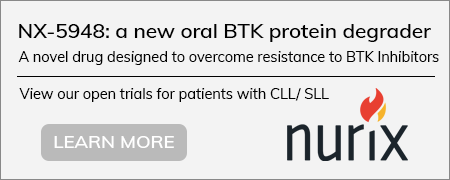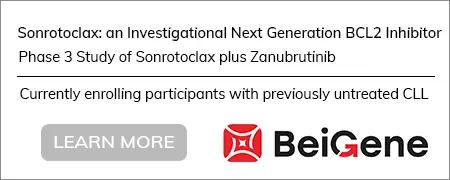Home » Treatment and Research » Clinical Trials
CLL Clinical Trials
CLL is not a solved problem, but we do have excellent treatments. It was only through clinical trials that the safety and efficacy of existing therapies was proven, and the only means by which any new therapies will become available.
Clinical trials are critical for the development of new methods to prevent, detect, and treat cancer. Within clinical trials, researchers determine whether new treatments are safe and effective and work better than current treatments. Participating in a clinical trial may also offer the opportunity to gain access to newer or more treatment options and possibly save some of the cost of medications. However there could be some undiscovered risks and downsides. Clinical trial inclusion and exclusion criteria determine whether you would be eligible for a specific trial. Most people first hear about clinical trials from their doctors, but you can search for clinical trials online on your own to explore what might be a good option. Discussing a potential trial would be part of the shared decision-making process you have with your CLL team.
Action Items for Clinical Trials
Visit these 4 links for in-depth information and articles.
Start with clinical trial basics.
This is where you can learn the basics about clinical trials, including FAQs, trial phases, how to navigate Clinicaltrials.gov, and much more.
Read the latest news about opening trials and status updates.
The latest news about the opening, closing, important amendments, holds, and other regulatory news is found here.
Find trial results.
The published results of many of the trials that help us better manage CLL / SLL will be posted here. Even more might be found on the website under the various subjects that the trial was studying such as COVID-19, Richter’s Transformation, or Relapsed/Refractory CLL / SLL.
Understand the patient perspective.
Benefit from the real-world experience of fellow patients and caregivers as they share what they learned from participating in clinical trials.
 Start with clinical trial basics.
Start with clinical trial basics.
This is where you can learn the basics about clinical trials, including FAQs, trial phases, how to navigate Clinicaltrials.gov, and much more.
 Read the latest news about opening trials and status updates.
Read the latest news about opening trials and status updates.
The latest news about the opening, closing, important amendments, holds, and other regulatory news is found here.
 Find trial results.
Find trial results.
The published results of many of the trials that help us better manage CLL / SLL will be posted here. Even more might be found on the website under the various subjects that the trial was studying such as COVID-19, Richter’s Transformation, or Relapsed/Refractory CLL / SLL.
 Understand the patient perspective.
Understand the patient perspective.
Benefit from the real-world experience of fellow patients and caregivers as they share what they learned from participating in clinical trials.
FEATURE
Clinical Trials: Frequently Asked Questions (FAQ)
Considering a clinical trial may seem like a daunting prospect, but sometimes it can be the smartest strategy. Here are some basic questions to help you make a good decision.
ADDITIONAL READING

RECENT NEWS
When appropriate, the CLL Society will be posting updates and background information on the present Coronavirus pandemic focusing on reliable primary sources of information and avoiding most of the news that is not directly from reliable medical experts or government and world health agencies.


















